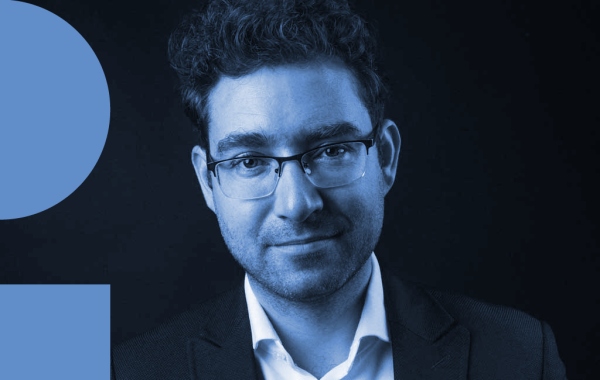Films on the history of Polish-Ukrainian relations
The Mieroszewski Centre, in cooperation with the Ukrainian history channel Realna Istoriya, is producing a series of documentaries which aim to overcome stereotypes and deepen mutual understanding between the societies of Poland and Ukraine. The project focuses on analysing the history of Polish-Ukrainian relations, presenting it from the diverse perspectives of both nations.
Realna Istoriya is a popular Ukrainian history channel on YouTube with an audience of several hundred thousand, which focuses on a wide range of topics related to the history of Ukraine and the Eastern European region. The channel is known for its material analysing key historical events that have affected Ukraine's national identity, its relations with its neighbours and the international context.
One of the main threats to Polish-Ukrainian relations are public emotions over interpretations of the past. They may arise as a result of the different historical memory of the two nations or under the influence of political instrumentalisation of issues related to the past. An additional threat is the influence of Russian historical disinformation on public discussions in both countries. Thanks to the cooperation undertaken, the Ukrainian audience will have a chance to become acquainted with a view on the course of the Volhynian massacre and the UPA's responsibility for it, which differs from the prevailing one in Ukraine.
The Volhynian massacre - what really happened between Poles and Ukrainians?
The premise of the programme is that the guests should present the historical perspectives prevailing in both countries , therefore in the first episode we heard the voice of Polish historians Prof. Grzegorz Motyka and Dr. Łukasz Adamski, while from the Ukrainian side Pavlo Klimkin, Minister of Foreign Affairs of Ukraine from 2014-2019, and Dr. Volodymyr Viatrovych, President of the Ukrainian Institute of National Remembrance from 2014-2019, talked about Volhynia.
Symon Petlura and Jozef Pilsudski: two leaders, one vision
In the second episode, the documentary explores two pivotal leaders in the history of Poland and Ukraine: Symon Petliura and Józef Piłsudski. Despite their many differences—culture, political experience, and visions for the future—they shared a conviction that cooperation between Poland and Ukraine was essential to defending their nations against the Bolsheviks. Why is this history relevant today? The alliance between Petliura and Piłsudski demonstrates that Polish-Ukrainian relations in the past were not solely marked by antagonism. It shows that, in the face of a common threat, the leaders of both nations could forge an agreement despite opposition to such collaboration in both countries.
Why Did Poland Succeed Quickly After 1989 While Ukraine Did Not?
In the final episode of this year, the authors compare the fates of Poland and Ukraine after World War II, delve into the context of the 1990s, analyze key decisions that shaped the development of both countries, and seek answers to the question of what lessons Ukraine can learn from Poland’s experiences.
The history of the 1990s was a time of great hopes and significant challenges for many countries in Central and Eastern Europe. The collapse of the Soviet Union opened doors to radical change, but the paths to democratic and economic growth turned out to be entirely different for neighboring nations. Why did Poland, whose economic situation in the late 1980s was worse than that of Soviet Ukraine, become a model of reform and modernization in the 1990s, while independent Ukraine became mired in corruption, oligarchization, and political instability?
As before, we have invited distinguished scholars from both countries to join the discussion:
- Wojciech Konończuk, Director of the Centre for Eastern Studies (OSW) – from Poland,
- and Prof. Ihor Tsependa, Rector of Vasyl Stefanyk Precarpathian National University – from Ukraine.
How Did the Polish and Ukrainian Approaches to the Russian Empire Differ in the 19th Century?
The history of Polish and Ukrainian interactions with the Russian Empire is a vast and fascinating topic. It includes examples of both resistance against Russia and agreements with the Tsarist regime, with each nation exhibiting distinct motivations and strategies.
Poland, with its long-standing tradition of statehood, possessed a strong sense of national identity and a deep-rooted aspiration for independence. The November Uprising (1830–1831) and the January Uprising (1863–1864) became symbols of a determined struggle against Russian oppression, rallying the nobility, the bourgeoisie, the intelligentsia, and, at times, even the peasantry in a collective effort for sovereignty.
For Ukrainians, however, the notion of independence was not as explicitly formulated during this period. Their struggle within the Russian Empire was primarily focused on preserving their language and culture, both of which were threatened by policies of Russification. The Ukrainian intellectual elite was only beginning to articulate national ideas, making cultural survival the central concern rather than political sovereignty.
These historical contexts significantly shaped the trajectories of both nations in the 20th century. What lessons can we draw from these experiences today?
The discussion will feature:
● Dr. Łukasz Adamski, Deputy Director of the Mieroszewski Centre;
● Dr. Yuriy Zemski, Professor at Khmelnytskyi National University.
The documentary series, which the Mieroszewski Centre is producing together with the Ukrainian channel Realna Istorija, will help to provide both societies with answers to many of the burning questions.
The next episodes are coming soon.












